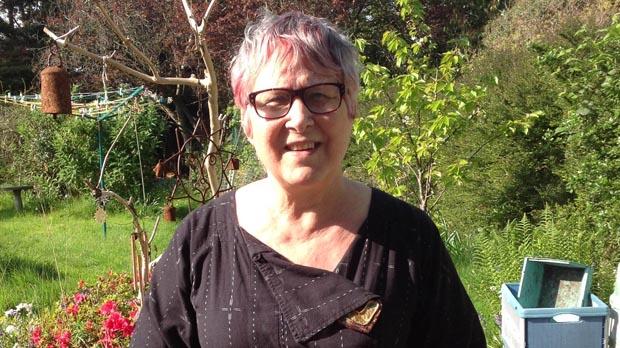
"I was delighted to take part in a clinical trial as it has the potential to really help others in the future.”
This trial looked at a cancer vaccine called tecemotide (used to be called Stimuvax) after chemotherapy and radiotherapy for non small cell lung cancer (NSCLC). Tecemotide is pronounced tee-sem-oh-tide.
Doctors sometimes use chemotherapy and radiotherapy to treat stage 3 lung cancer. Stage 3 lung cancer means the cancer may have grown into surrounding tissues, or there may be cancer cells in the lymph nodes. Unfortunately these treatments don’t always work very well and the lung cancer can start to grow again.
Tecemotide is a type of biological therapy called a cancer vaccine. Some people in this trial had tecemotide injections, and some had dummy (placebo) injections.
The aims of this trial were to find out
The research team found that overall tecemotide didn’t help people with stage 3 non small cell lung cancer to live longer. But it did help some people, and was safe.
This trial recruited 1,513 people from 33 countries around the world. They all had stage 3 lung cancer and had already had chemotherapy and radiotherapy. Some people had had chemotherapy and radiotherapy together. This is called concurrent treatment. Some had had chemotherapy and then radiotherapy. This is called sequential treatment.
The people taking part were put into 1 of 2 treatment groups at random. There were 2 people in the vaccine group for every 1 person in the placebo group. So
Everyone taking part had 4 injections just under the skin (subcutaneous injections) once a week for 8 weeks. They then had 4 injections once every 6 weeks until their cancer started to grow again.
The research team looked at how long it was before the cancer started to grow again. They found it was 10 months for those who had tecemotide, and 8.4 months for those who had the placebo. The difference in these two figures could be due to chance and was not significant in statistical terms.
They also looked at how long people in each group lived. They found those who had tecemotide lived an average of 25.6 months. And those who had the placebo lived an average of 22.3 months. The difference in these two figures was also not significant in statistical terms.
They then looked at the results for the 806 people who’d had chemotherapy and radiotherapy together (rather than chemotherapy followed by radiotherapy) before they joined the trial. They found that those who had tecemotide lived for an average of 30.8 months. And those who had the dummy injections lived an average of 20.6 months.
About 1 out of 3 people (34%) who had tecemotide had side effects caused by the treatment, and about 1 in 4 people (27%) who had the placebo. But most of the side effects were not serious. The most common side effects were cough, breathlessness, tiredness, back pain and feeling sick.
The trial team concluded that tecemotide was safe to use but overall it didn’t help people with non small cell cancer to live longer. They say it might be useful for people who have chemotherapy and radiotherapy together first, but more work needs to be done to look at this in more detail.
We have based this summary on information from the team who ran the trial. The information they sent us has been reviewed by independent specialists ( ) and published in a medical journal. The figures we quote above were provided by the trial team. We have not analysed the data ourselves.
) and published in a medical journal. The figures we quote above were provided by the trial team. We have not analysed the data ourselves.
Please note: In order to join a trial you will need to discuss it with your doctor, unless otherwise specified.
Professor A. Price
Experimental Cancer Medicine Centre (ECMC)
Merck KGaA
If you have questions about the trial please contact our cancer information nurses
Freephone 0808 800 4040

"I was delighted to take part in a clinical trial as it has the potential to really help others in the future.”